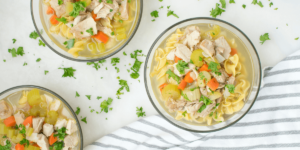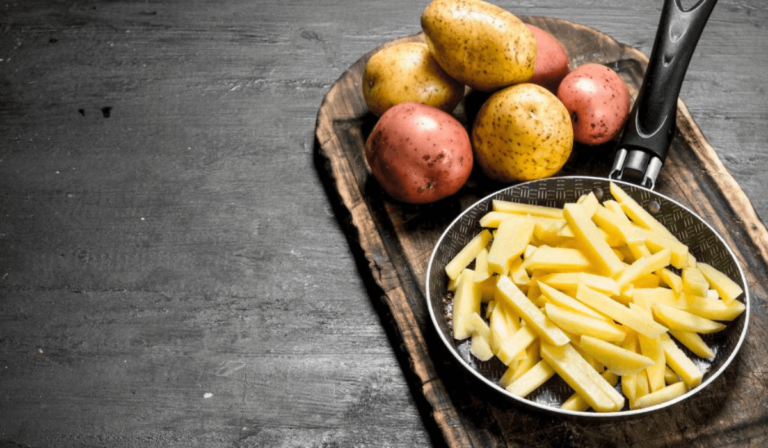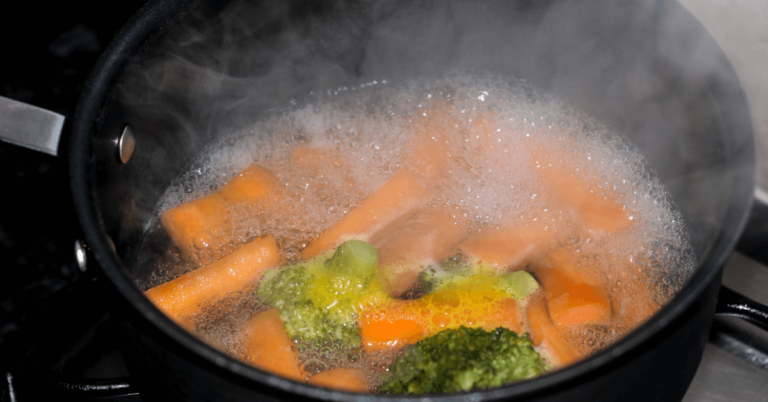Chicken Noodle Soup: A Time-Honored Remedy for the Sick
Part 1: Introduction to Chicken Noodle Soup as a Remedy
Chicken Noodle Soup for the sick ; chicken noodle soup – isn’t it just the quintessential comfort food when you’re under the weather? But have you ever wondered why this simple dish is so often recommended for those sick days? Let’s dive into the historical and cultural significance of chicken noodle soup and unravel the popular beliefs and myths surrounding it.
The Historical and Cultural Tapestry of Chicken Noodle Soup
Chicken noodle soup isn’t just a meal; it’s a piece of history in a bowl. This humble soup has been a staple from ancient Greek philosophies to Jewish traditions. But why? Well, it’s all about the belief in food as medicine. Hippocrates, the father of modern medicine, famously said, “Let your food be your medicine.” This idea has permeated various cultures, making chicken noodle soup a go-to remedy.
Unraveling the Myths: Is It Just an Old Wives’ Tale?
Now, let’s tackle the big question: Is chicken noodle soup really a cure-all, or is it just an old wives’ tale? While it may not be a miracle cure, there’s more to this soup than meets the eye. Its warmth, the steam, the hydration from the broth – all these elements play a role in making you feel better. But is there scientific evidence to back this up? We’ll explore this in the upcoming sections.
In conclusion, chicken noodle soup is more than just a dish; it’s a cultural icon steeped in history and surrounded by myths. It’s a testament to the power of traditional remedies and the enduring belief in the healing properties of food. So, the next time you’re feeling sick, remember a bowl of chicken noodle soup might just be the perfect blend of comfort and cure.
In the next part, we’ll delve deeper into the nutritional profile of chicken noodle soup and uncover how each ingredient contributes to your recovery. Stay tuned!
Part 2: Nutritional Profile of Chicken Noodle Soup
Let’s dive into what makes chicken noodle soup a go-to for the sick. It’s not just comforting; it’s a nutritional powerhouse!
What’s in the Bowl?
Chicken noodle soup is a mix of all the good stuff. The chicken? It’s packed with protein, essential for healing. The noodles? They’re your energy boosters, thanks to the carbs. And the broth? It’s not just tasty; it’s hydrating and full of electrolytes, which are super important when you’re sick.
Veggies for the Win
Don’t overlook the veggies in your soup! Carrots, celery, and onions are more than just flavour enhancers. They’re loaded with vitamins A and C and other antioxidants that help your immune system fight back. Plus, they bring in minerals like zinc and selenium, which are secret agents for your body’s defence system.
Hydration: More Than Just Water
When you’re sick, drinking enough fluids is key. The broth in chicken noodle soup does more than just quench your thirst. It helps keep your body’s fluid balance in check, which is super important when you’re trying to get better.
In short, chicken noodle soup is more than just a feel-good food. It’s scientifically sound for recovery. Up next, we’ll look at the science behind why this soup is so good when you’re sick. Stay tuned!

Part 3: The Scientific Perspective on Chicken Noodle Soup
Now, let’s get into the nitty-gritty: what does science say about chicken noodle soup as a remedy for the sick? It turns out there’s more to this comfort food than just tradition and good feelings.
Chicken Soup in the Lab
Researchers have actually put chicken noodle soup under the microscope. What did they find? For starters, the soup has mild anti-inflammatory effects. This means it can help reduce the stuffiness and discomfort that comes with upper-respiratory infections like the common cold.
How Does It Work?
So, how does chicken noodle soup pull off this neat trick? It’s all about the ingredients working together. The chicken provides protein, essential for healing. The vegetables add vitamins and antioxidants that support your immune system. And the warm broth? It helps clear nasal passages, making it easier to breathe.
Not Just Any Soup Will Do
Interestingly, not all chicken soups are created equal. Studies have shown that homemade soups often have more benefits than store-bought versions. It could be due to the fresher ingredients or the love that goes into making it. Either way, it’s a point for Team Homemade!
In conclusion, science backs up what we’ve believed for years: chicken noodle soup really can help when you’re sick. It’s a blend of nutrition and comfort that not only makes you feel better but also supports your body’s healing process. Up next, we’ll explore the psychological and comfort factors of chicken noodle soup. Stay tuned!
Part 4: Psychological and Comfort Factors of Chicken Noodle Soup
Beyond its physical benefits, chicken noodle soup is special in our hearts and minds. Let’s explore the psychological aspects and the comfort it brings, especially when we’re not feeling our best.
The Emotional Connection
Why does chicken noodle soup feel like a hug in a bowl? It’s often tied to memories of care and comfort from our childhood. When we’re sick, reverting to these familiar, comforting experiences can be incredibly soothing. It’s not just about the ingredients; it’s about the feeling of being nurtured and cared for.
The Placebo Effect at Play
Could part of the healing power of chicken noodle soup be in our heads? Absolutely! The placebo effect is a powerful thing. If we believe that a bowl of soup will make us feel better, our bodies can respond to that belief. This mind-body connection is a fascinating area of study and shows how our mental state can influence physical health.
Warmth and Comfort in Every Spoonful
There’s also something inherently comforting about the warmth of the soup. It’s like a warm embrace, providing a sense of safety and well-being. This comfort can help reduce stress and promote relaxation, which are both important for recovery when you’re feeling under the weather.
In summary, the power of chicken noodle soup extends beyond its nutritional value. It’s a psychological comforter, a reminder of care and affection, and a warm, soothing presence in times of illness. Next, we’ll delve into how to prepare and consume chicken noodle soup for maximum benefit. Stay tuned!
Part 5: Preparing and Consuming Chicken Noodle Soup
Now that we understand the benefits of chicken noodle soup let’s talk about how to make the most of this comforting dish. Whether you’re a kitchen novice or a seasoned chef, preparing a nourishing bowl of chicken noodle soup can be both simple and satisfying.
Crafting the Perfect Bowl
The beauty of chicken noodle soup lies in its simplicity and versatility. Start with a base of chicken broth, add in your chicken (breast or thigh for more flavour), and then choose your vegetables. Carrots, celery, and onions are classic choices, but feel free to get creative. Don’t forget the noodles – egg noodles are traditional, but any pasta will do.
Homemade vs. Store-Bought: A Nutritional Showdown
While store-bought chicken noodle soup can be convenient, homemade soup usually wins in terms of nutrition and flavour. When you make it at home, you control the ingredients and can avoid preservatives and excess sodium often found in canned soups. Plus, the act of preparing the soup can be therapeutic in itself.
Tips for a Nutrient-Rich Soup
To boost the nutritional value, consider adding herbs like thyme or rosemary. For an extra immune boost, throw in some garlic or ginger. If you’re feeling adventurous, why not try adding a splash of lemon juice or a handful of spinach for added vitamins?
In conclusion, making chicken noodle soup at home can be a rewarding and healthful experience. It’s not just about feeding your body; it’s about nurturing your soul, especially when you’re not feeling well. In the next part, we’ll explore the global variations of chicken soup and how different cultures embrace this healing dish. Stay tuned!
Part 6: Chicken Soup Around the World
Chicken noodle soup might be a classic, but did you know that almost every culture has its own version of this comforting dish? Let’s take a quick trip around the globe to see how different countries make chicken soup their own.
A Flavorful Journey
In Asia, chicken soup often gets a zesty twist with ingredients like ginger, lemongrass, or star anise. Think of a warm, fragrant bowl of soup with rice noodles, offering both comfort and a burst of flavour.
Head over to Mexico, and you’ll find a spicier version. Here, chicken soup is often jazzed up with chilli peppers and topped with fresh cilantro and avocado. It’s not just soup; it’s a fiesta in a bowl!
Local Ingredients, Unique Soups
Every region adds its own touch. In Italy, for instance, you might find tiny pasta like orzo in a clear, savoury broth. And in Jewish cuisine, matzo balls are a cherished addition, especially during festive times like Passover.
The Universal Language of Soup
What’s amazing is how chicken soup, in all its forms, remains a universal symbol of comfort. It’s like a culinary hug, shared across borders, bringing a sense of warmth and well-being wherever it’s served.
In short, chicken soup is a global star, adapting to local tastes while keeping its comforting essence. It’s amazing how a simple dish can bring a taste of home, no matter where you are in the world.
Part 7: FAQs About Chicken Noodle Soup
Let’s round off our chicken noodle soup journey by answering some common questions. Quick, simple answers to what you’ve always wondered about this classic comfort food!
Why Do People Eat Chicken Noodle Soup When Sick?
Chicken noodle soup is a favourite for colds and flu because it’s warm, hydrating, and soothing. The steam helps with congestion, and the nutrients from the chicken and veggies support your immune system.
Can Chicken Noodle Soup Cure My Cold?
While it’s super comforting and nutritious, chicken noodle soup isn’t a magic cure. It can help ease symptoms and give you important nutrients, but it’s not a replacement for medical treatment.
Is This Soup Easy on the Stomach?
Yes, chicken noodle soup is usually gentle on your stomach. It’s a go-to if you have mild digestive issues because of its simple, soothing ingredients.
Should I Choose Homemade or Store-Bought Soup?
Homemade is often better because you can control what goes into it, like less salt and no preservatives. Plus, you can make it just how you like it!
What If I’m Vegetarian?
No chicken? No problem! Vegetarians can swap in tofu or beans for chicken and use vegetable broth instead. You still get a comforting, nutritious soup, plant-based.
And there you have it – chicken noodle soup demystified! Whether you’re whipping up a homemade batch or warming up a store-bought one, it’s a comforting classic that’s loved worldwide.






